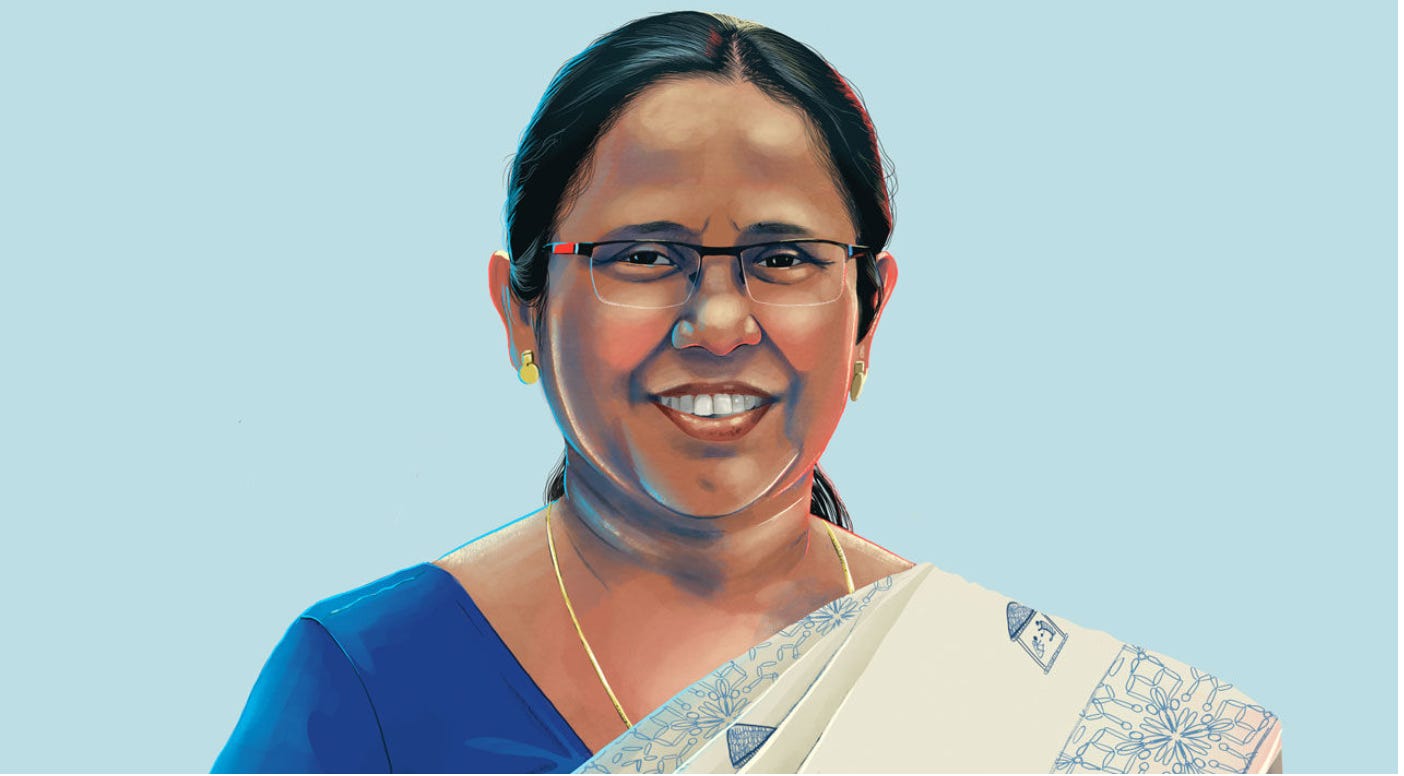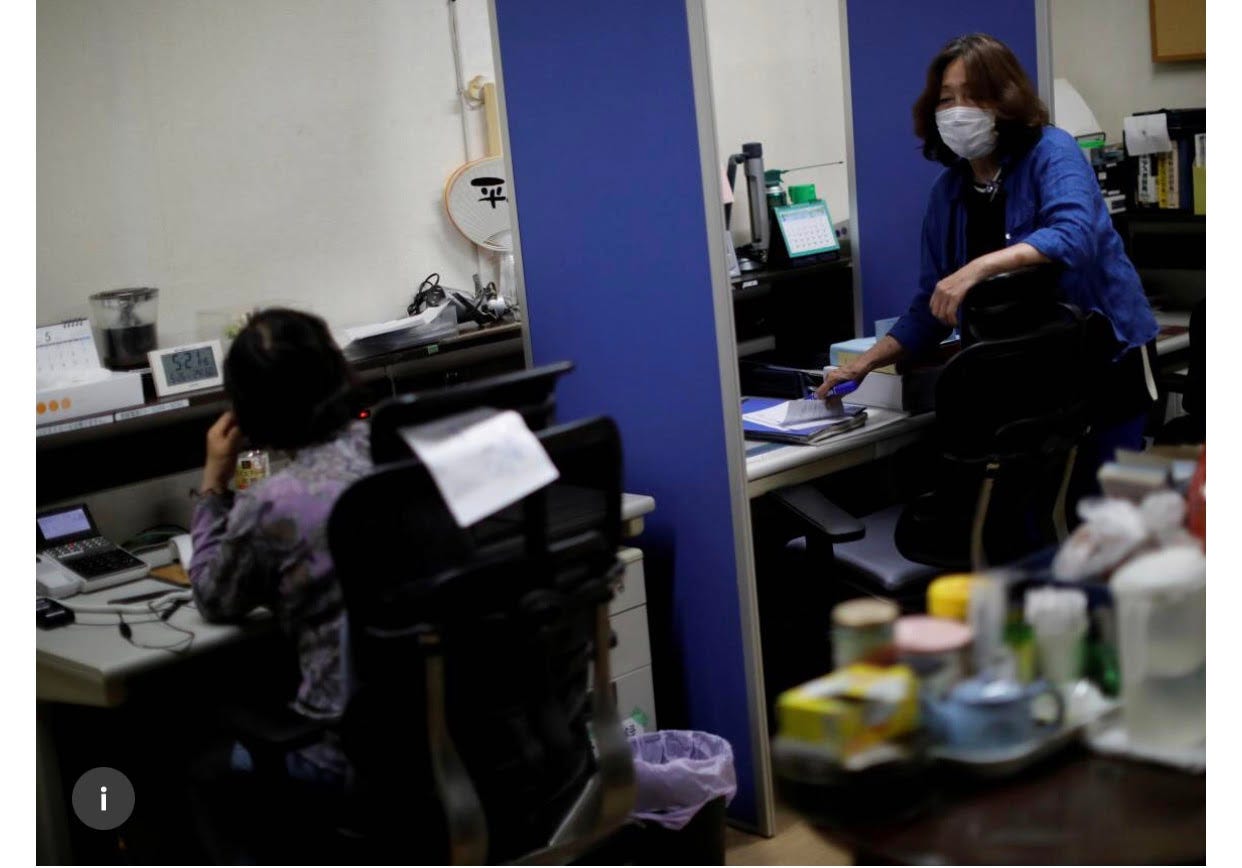Global Roundup: Women fighting the patriarchy, oppression and the pandemic via running for politics and politically-charged art
Compiled and written by Samiha Hossain
Taina Rosa (left) and Lauana Nara, candidates in this week’s municipal elections, want more Black women in office Credit: Dokttor Bhu Bhu and Allan Calistovia OpenDemocracy
Black women in Brazil are working together to increase their political participation. In 2018, Marielle Franco, a Black, queer Rio de Janeiro councilwoman was assassinated before Brazil’s 2018 general election. Following Franco’s murder that year, more than 1,000 Black women ran for office - a 60% increase from the last election cycle in 2014. This month, the municipal elections will take place and more women candidates, including Black women, than ever before are poised to run.
Mulheres Negras Decidem (Black Women Decide), is a collective created in 2018 cofounded by Ana Carolina Lourenço to support Black women candidates and has played an important role in the success of Black women’s political mobilization. In addition, Taina Rosa and Lauana Nara are running collectively for city council in Belo Horizonte after meeting last year and creating Mulheres Negras Sim (Yes to Black Women) together. They intend to tackle institutional racism, address the increasing gender-based violence during the pandemic and create 24-hour childcare to support women.
We chose this name deliberately to emphasise a ‘yes’ to life in view of the many murders of Black women, and a ‘yes’ to our presence in the spaces of power from which we have always been excluded - Taina Rosa
Gaining visibility - particularly in the climate of predominantly all-male conservative parties that hold most of the power - does not come without its challenges. Black women running for office face death threats, hate and racist messages, and online harassment. These various forms of patriarchal violence have not caused Black Brazilian women to back down. Through local organizing and collective action, they are disrupting spaces that were not built for them and drawing attention to issues that are rarely prioritized.
--------------------------------------------------------------------------------------------------
“Until we get a vaccine, all of us will have to sacrifice some pleasures in our lives,” says K. K. Shailaja, health minister of India’s Kerala state./image by KATTY HUERTAS via ScienceMag.com
K. K. Shailaja is a woman running the health ministry in the southern state of Kerala in India - she has played a significant role in flattening the COVID-19 curve in her state. Kerala had a high risk of quickly spreading COVID-19, as the state has a high urban population, many residents live abroad (including many students studying in Wuhan University) and many migrant labourer residents from other states. However, the spread of the virus was mitigated by Shailaja and her rapid response team through targeted testing, contact tracing, and isolation measures. In fact, the number of daily cases was brought down to zero in the first few months.
In many ways, [Kerala] got it right. They possibly got it right the most of any Indian state - Shahid Jameel, virologist and director of Ashoka University’s Trivedi School of Biosciences
Kerala’s effective handling of the virus has been attributed to the strong leadership of Shailaja, who is described as “calm and cheerful”. Shailaja credits her grandmother for her bravery in politics. Her family joined the communist movement in the 1950s and her grandmother would bring her to protests against caste oppression.
Kerala is a leftist state with strong social services, which has led to a quality healthcare system and some of the best healthcare indicators in the country. Shailaja has added to these positive outcomes by “engaging scientific advice, generating support across ministries, and communicating with the public”. Her political rivals seem to have an issue with her success as a woman, one calling her “COVID Queen”. However, Shailaja remains unbothered and has been preparing for a possible second wave.
--------------------------------------------------------------------------------------------------
Director of the Tokyo Befrienders call center, a Tokyo's suicide hotline center, and a volunteer handle an incoming call at the center during the spread of the coronavirus disease (COVID-19), in Tokyo, Japan May 26, 2020. Picture taken May 26, 2020. REUTERS/Issei Kato
CW: Suicide. Please call your local mental health or suicide hotline and reach out to your support network if you are struggling with suicide.
Women in Japan are being disproportionately affected by the rising suicide levels in the country following COVID-19. Activists are saying that job losses have resulted in this trend. Women bear the brunt of the economic impact, as they are more likely to occupy precarious positions such as non-permanent employment in the retail or service industries, which are susceptible to job losses.
Preliminary police data indicates that there were 2,153 suicides in October - a 300 increase from September. 851 of those 2,153 suicides were by women. If we compare the October 2020 suicide rates to those of October 2019, women’s suicide rose by 82.6%.
Historically, suicide has been a way to avoid shame and dishonour in Japan. However, through a prevention programme launched in 2007, the country has seen huge improvements. It is disheartening that the pandemic has backtracked some of this progress. It is absolutely imperative that new policies and efforts are developed that are specific to COVID-19 and women’s mental health. On a longer term scale, feminized labour needs to be valued in our society. Fuck capitalist and patriarchal notions, which make women feel like they are worth nothing more than the labour they produce.
--------------------------------------------------------------------------------------------------
Ez Zehra (I, Zehra), 2019. Started in Diyarbakır prison, finished in Tarsus prison; made from feathers, hair and menstrual blood. Photograph: Zehra Dogan via The Guardian
Zehra Doğan, an exiled artist who spent almost three years in jail in Turkey, uses art as a form of resistance and a way to highlight Kurdish feminism. Thousands have been arrested and detained in Turkey since the 2016 attempted coup against President Recep Tayyip Erdoğan’s government. Doğan was sentenced to over two years in jail for “terrorist propaganda and inciting hatred” through her journalism and painting of a town in the majority-Kurdish southeast of the country that was destroyed in a Turkish military operation. She left the country after being released last year.
Kurds have been fighting for our rights for 100 years now. Some choose to fight with weapons. We need to learn to fight through other means. For me, that is art - Zehra Doğan
Creating visual art while in prison is no easy feat. Doğan had to make use of newspaper, clothes, crushed herbs, menstrual blood and cigarette ash among many other unexpected materials. She smuggled her series of work out of her jail cell as laundry. Her first solo exhibition is now on display in Istanbul as Not Approved.
Doğan’s work is evocative and sends a powerful message. Although her exhibition has been well received, she is struggling to find a platform. The Kurdish minority in Turkey have very limited cultural and linguistic rights. Since peace talks broke down between the ruling party and the Kurdistan Workers’ party in 2015, many Kurdish politicians have been removed from office and imprisoned. Although she is living in exile, Doğan is helping organise workshops for young Kurdish artists. She is determined to continue fighting using her art.
--------------------------------------------------------------------------------------------------
Photo WARNER MUSIC THAILAND via VICE
Artists and their fans have been a powerful force amid the youth-led protest movement in Thailand that is demanding the resignation of the prime minister, a new constitution and reforms to the monarchy. Pyra is a Thai singer who has recently released a music video for her song “Bangkok”, which is dedicated to the protesters fighting for democracy. The music video with over 81,000 views on Youtube features a lot of overt political messages.
White men often view Asian women as being submissive and Thailand is seen as the brothel of the world. I want to smash that stereotype and challenge perceptions. Women are allowed to be whatever they want to be and if they want to do sex work, it should be respected - Pyra
Pyra’s unique music explores themes of feminism, capitalism, mental health and sex work, combining traditional Asian instruments with electronic beats. Raised in a conservative family, Pyra’s music has helped her tap into her rebellious spirit. She is not afraid to be herself and express her views and says the only thing that will stop her music is her arrest.
—————————
Samiha Hossain (she/her) is a student at the University of Ottawa. She also works with survivors of sexual violence in her community from an anti-oppressive and trauma-informed perspective. A lot of her time is spent learning about and critically engaging with intersectional feminism, transformative justice and disability justice.
Samiha firmly believes in the power of connecting with people and listening to their stories to create solidarity and heal as a community. She refuses to let anyone thwart her imagination when it comes to envisioning a radically different future full of care webs, nurturance and collective liberation.






